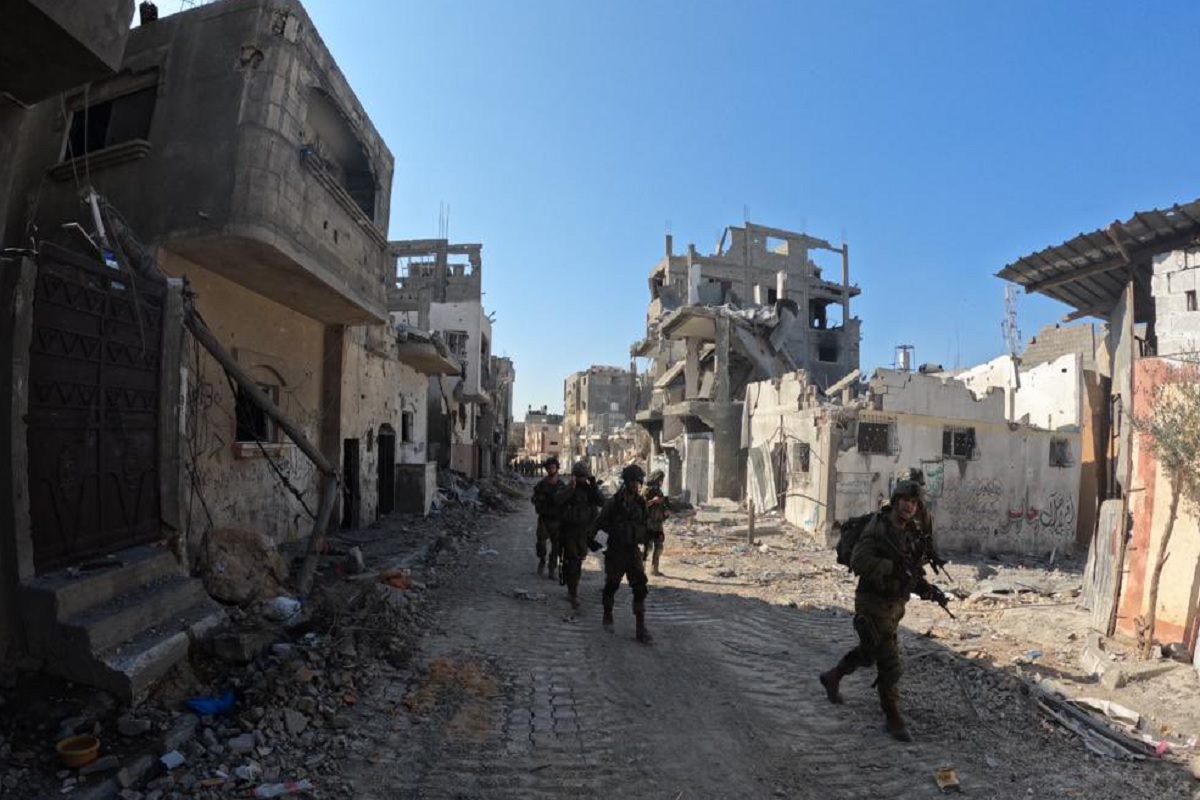There remained an uneasy peace between Israel and Palestine despite the peace accord facilitated by the US in the past but the acrimony never disappeared. Then on 7 October, without warning, Gaza’s militant Hamas rulers attacked Israel by air, land and sea, forcing millions of Israelis to run helter-shelter for safety.
This was soon followed by air raid sirens across Tel Aviv and soon Israeli’s anti-rocket interceptors thundered in Jerusalem. This quickly escalated. Even when Israeli Prime Minister Benjamin Netayahu and his far-right allies were scrambling to respond to these rapidly changing events, Hamas fighters blew up parts of Israeli’s highly fortified separation fence and strode into Israeli communities along the Gaza frontier, terrorising residents and trading fire with Israeli soldiers. Within nine hours, some 40 Israelis and nearly 200 Palestinians were dead.
The numbers on either side are increasing by the day. Hamas’ sudden multi-pronged attack that suddenly plunged Israel into war has global consequences. What caught Israel unaware was a rerun of what happened 50 years earlier when a full-scale Egyptian-Syrian attack on Simchat Torah, on one of the most joyous days of the Jewish calendar and a holiday which quickly turned into disaster.
This time too, the Israeli military was surprised by the attack by Hamas. Like last time, this time too it was a clear case of intelligence failure as no alert was given in advance to the army. Israel is still haunted by that colossal failure and the legacy of then Prime Minister Golda Meir which brought to an end the lengthy rule of the once-dominant Labor Party.
The same kind of failure now shall haunt Netanyahu’s ultranationalist government and pose a major challenge. Hamas’ attack took Israeli intelligence officials by surprise, particularly the methods the militants used to enter and leave Israel. This may change Israel’s overall strategic approach to Hamas and the Gaza Strip. That could have a far reaching effect on the entire West Asia.
Until now, Israel has contained Hamas and Gaza with a strategy that hinged on an intelligence network that would warn against Hamas’ moves, and on the power of the Israeli army to repel a ground invasion by Hamas. In the present Hamas attack, these two safeguards failed. So far Israel had prided itself on its intelligence agencies ~ the Shin Bet, the domestic unit, and Mossad, the external spy agency, perceived to be the strongest intelligence power in the region. Its reputation has now been dented as it did not clearly see an impending assault by Hamas.
Not only that, Netanyahu would feel betrayed that his hard-line ministers failed in securing the intelligence to alert in advance an impending assault on Israel by the militants in Gaza. Despite that Netanyahu has the support of the US and other friendly countries and as the casualty count climbs, he would be seen as losing control of both the government and the country.
Even when Israel continued its blockade of the Gaza Strip, vowed mighty vengeance, and launched massive air strikes hitting even schools and residential complexes, as well as the UN buildings, the Hamas threatened to execute civilian hostages if Israel did not stop its strikes. In further measures, Israel called up an unprecedented 300,000 reservists, indicating that it was planning a massive ground assault.
Israel has laid a total siege of the Gaza Strip, depriving civilians of goods essential for survival. Israel is so outraged that it does not care if such measures of denial are banned under international law. Its main target is to nab Hamas military commander Mohammed Deif, the mastermind of the assault. Hamas has threatened to execute an Israeli captive for every Israeli bombing of a civilian house and would not negotiate over hostages under fire. The WHO too is affected in its programme to render humanitarian assistance and unable to channel critical medical supplies.
Without fuel and electricity, hospitals are unable to render service to the people. But in war times, the combatants are not expected to adhere to such goals. Among the casualties, there are many foreigners including 18 Thais, a Cambodian student, 11 US citizens and two French nationals. Many foreigners are missing and some may have died too. There are thousands of Indian students whose lives are unsafe.
The Indian embassy has issued an advisory for them not to enter danger zones and avoid unnecessary outings. According to the United Nations, hundreds of thousand people have been displaced in the Gaza Strip since Hamas’ assault. The world is concerned at this sudden turn of events. Major stakeholders have activated diplomacy to see the mayhem stops. The US, which already provides Israel with $3.8 billion in military assistance each year, has refrained from sending troops.
The EU backtracked on an announcement that aid to Palestinians had been suspended, after member countries complained that the bloc’s executive had overstepped the mark. Iran has denied any involvement in Hamas’ shock attack despite its strong support for the Palestinian militant group. This did not prevent Iran’s Supreme Leader Ayatollah Ali Khamenei from saying that it was a clear case of Israel’s intelligence defeat. It is suspected that Hamas’ attack is linked to ongoing USbrokered talks on normalisation of ties between Israel and Saudi Arabia.
The impact of the conflict in West Asia was immediately felt in India as the stock market lost value as fears of geopolitical stress hit investor confidence. Global crude oil prices moved in the northward direction after the Israel-Hamas war. The West Asia sector is the centre of global energy. To calm nervousness in the market, Union Petroleum Minister Harddeep Puri said that India is watching the ongoing conflict carefully and shall handle its energy needs with maturity. The fallout in markets will likely be determined by whether conflict spreads to the rest of the Middle East region.
The oil traders are likely to shift focus to Iran. For India which is a large importer of crude oil from various sources, the price pressure on energy prices shall remain a matter of worry. All major stakeholders need to invigorate diplomatic channels to secure a breakthrough to protect human lives and the global economy
(The writer is former senior fellow at PMML and MOIDSA New Delhi and the former ICCR professor Reitaku University,Japan)












